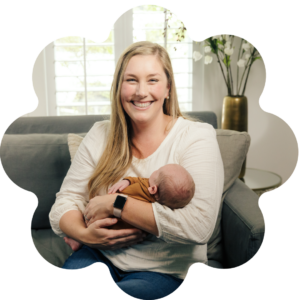
Navigating your baby’s sleep-wake cycle can be a challenge. You may be asking yourself, “How many wake windows should my baby have, and how long should they be?” They can’t tell you with words whether they’re getting too tired, or they’re not tired enough for a nap. This is where making routine decisions based on your baby’s age and knowing what cues and milestones to look out for comes in.
How To Know If Your Baby’s Wake Window Is Too Short
Wake windows are the parts in your baby’s day when they’re awake – it’s during these windows that your baby will have tummy time and get fed. These times directly impact your baby’s feedings and sleep.
But, how long should your baby’s wake windows be? Well, it depends and it’s not consistent. Some wake windows may be over an hour while others only 60 minutes. You can get a basic guideline based on your baby’s age:
- From zero to four weeks, a newborn’s wake windows should be between 35 to 60 minutes. (Get the Baby Settler free recommended routine for babies two to six weeks here)
- From four to 12 weeks, the wake windows can extend to 90 minutes.
- Up to four months of age, wake windows can be between 75 to 120 minutes.
- From five to seven months, wake windows can be two to three hours.
So, as your baby grows, their wake windows get longer, their naps decrease, and they start sleeping for way longer stretches at night.
Remember, this is just a guideline – all babies are different and not every day is the same. If your little one had a longer nap than usual, you may need to adjust their wake window accordingly.
Telltale signs that your baby’s wake window is too short are:
- They have reached a new age milestone and therefore can stay awake for longer.
- They struggle to fall asleep (not just once, but multiple times).
- They don’t stay asleep – they keep waking up and don’t have full naps or wake up more often during the night.
How To Stretch Wake Windows
If your baby is experiencing the above, you can start to stretch their wake windows by:
- Increasing their wake windows gradually – by about five to 10 minutes – every day.
- Keeping their wake windows interesting with engaging activities.
- Making sure your baby is sleeping in an optimal sleeping environment (quality sleep can help your baby stay awake longer).
- Looking out for their sleepy cues to recognize when to put them down for a nap.

How To Know If Your Baby’s Wake Window Is Too Long
You may have times when your baby’s wake window is too long and they get overtired. It’s so important to realize that an overtired baby does not equal better sleep – in fact, it’s the opposite. An overtired baby is overstimulated and can become fussy and struggle to fall asleep and stay asleep. So, supporting quality naps and wake windows is crucial for optimal nighttime sleep.
Here are signs of an overtired baby:
- Fussiness and irritability, including crying.
- They have a hard time settling down for sleep, even when they are clearly tired.
- Hyperactivity and difficulty calming down.
- Reduced appetite and may not be interested in feeding.
To shorten your baby’s wake window, try putting them down for naps 15 to 20 minutes earlier. Download Baby Settler’s free guide to longer naps here.
You know your baby’s wake window is just right when they’re able to fall asleep easily and stay asleep for over an hour.
What Wake Windows Should Include
Wake windows during the day should include feeding. So, after your little one wakes up and gets a diaper change, feed them. Afterward, there are a variety of things you can do with your baby, including tummy time. “Tummy time is important because it helps prevent flat spots on the back of your baby’s head; makes neck and shoulder muscles stronger so your baby can start to sit up, crawl, and walk; and improves your baby’s motor skills (using muscles to move and complete an action),” explains Safe To Sleep. This is super simple: Just lay a play mat on the floor with your baby’s toys around them. They will reach, stretch, and crawl to their toys.
Another great activity to include in their wake windows is a walk outside (weather permitting!). “Getting fresh air and natural sunlight is good for both you and your baby, no matter how recently they were born. In fact, there is no medical reason not to take your little one outside the day after you bring them home from the hospital, as long as you both feel up to it,” says Very Well Family. Some benefits of sunshine and fresh air for your baby include better nighttime sleep, improved immunity, and it gives your little one a chance to explore the outside world.
Wake windows really don’t need to be fancy. Simply putting them in their chair, bringing them with you as you walk around the house, and engaging with them while doing chores is great, too.
Wake windows aren’t the answer to all sleep concerns, but they can help you avoid an overtired baby. They are one of the many sleep foundations that can work together to get mama and baby more sleep.




